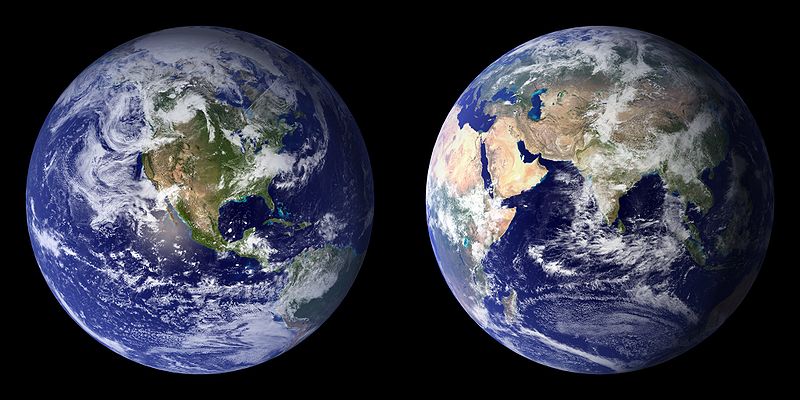
Sustainability
Sustainability
From Wikipedia, the free encyclopedia

Achieving sustainability will enable the Earth to continue supporting human life as we know it. “Blue Marble” NASA composite images: 2001 (left), 2002 (right).
See also: Sustainable development
Sustainability is the capacity to endure. For humans, sustainability is the long-term maintenance of well being, which has environmental, economic, and social dimensions, and encompasses the concept of union, an interdependent relationship and mutual responsible position with all living and non living things on earth. This philosophical interpretation moves well beyond definitions driven by progress oriented economic perspectives that see humans as providing stewardship, the responsible management of resource use. In ecology, sustainability describes how biological systems remain diverse and productive over time, a necessary precondition for human well-being. Long-lived and healthy wetlands and forests are examples of sustainable biological systems.
Healthy ecosystems and environments provide vital goods and services to humans and other organisms. There are two major ways of managing human impact on ecosystem services. One approach is environmental management; this approach is based largely on information gained from earth science, environmental science, and conservation biology. Another approach is management of consumption of resources, which is based largely on information gained from economics.
Human sustainability interfaces with economics through the social and ecological consequences of economic activity. Moving towards sustainability is also a social challenge that entails, among other factors, international and national law, urban planning and transport, local and individual lifestyles and ethical consumerism. Ways of living more sustainably can take many forms from reorganising living conditions (e.g., ecovillages, eco-municipalities and sustainable cities), to reappraising work practices (e.g., using permaculture, green building, sustainable agriculture), or developing new technologies that reduce the consumption of resources.
